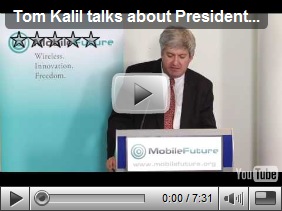This is a good overall video that opens up discussion on where wireless technology, cell phones is headed and compares some of the uses in India to perhaps something we could use here. The Android phone and it’s potential is discussed. Also mentioned is the study on Participatory Sensing being conducted at UCLA and I have mentioned it a couple times recently here on the blog. Now that everyone could have the ability to take pictures, communicate, get medical stats, etc. what is the level that makes sense for realistic use, that’s a loaded question. I ponder that one quite a bit myself. Realistic is the key word here to be able to function with all of the capabilities and not have excessive distraction and intrusion keep us from doing what we need to do, like our jobs.
perhaps something we could use here. The Android phone and it’s potential is discussed. Also mentioned is the study on Participatory Sensing being conducted at UCLA and I have mentioned it a couple times recently here on the blog. Now that everyone could have the ability to take pictures, communicate, get medical stats, etc. what is the level that makes sense for realistic use, that’s a loaded question. I ponder that one quite a bit myself. Realistic is the key word here to be able to function with all of the capabilities and not have excessive distraction and intrusion keep us from doing what we need to do, like our jobs.
Participatory Sensing – Medical Devices Reporting Data and Their Use
Sty tuned as there will be a lot more to come on this challenging issue, and I mean a lot, especially when you begin speaking about devices that report personal data, their use, and privacy. We still need some algorithmic centric laws to govern all of this too, if anyone in Congress happens to be listening. BD
“We’re in the adolescence of the mobile and wireless revolution,” White House Deputy Director for Policy in the Office of Science and Technology Tom Kalil declared during a presentation at the Mobile Future luncheon in Washington D.C. this week. Kalil explained that wireless technology could help improve (and in some cases has already improved) the U.S. education system, the U.S. healthcare system and the country’s push for a carbon-neutral energy system.
Kalil said that the Administration is now trying to determine what “ambitious” but “realistic” goals we should be setting to use wireless technologies to solve national challenges, including healthcare. Kalil said that part of that discussion needs to examine legal and regulatory barriers; consider establishing prizes like the Android Developer challenge; fund research to determine the benefits of these solutions; and create fora for multi-sector collaboration, like the mHealth Alliance, which is a partnership between Vodafone Foundation, UN Foundation and Rockefeller Foundation to support wireless health initiatives in developing markets.
White House: Wireless health is “really promising” | mobihealthnews




0 comments :
Post a Comment